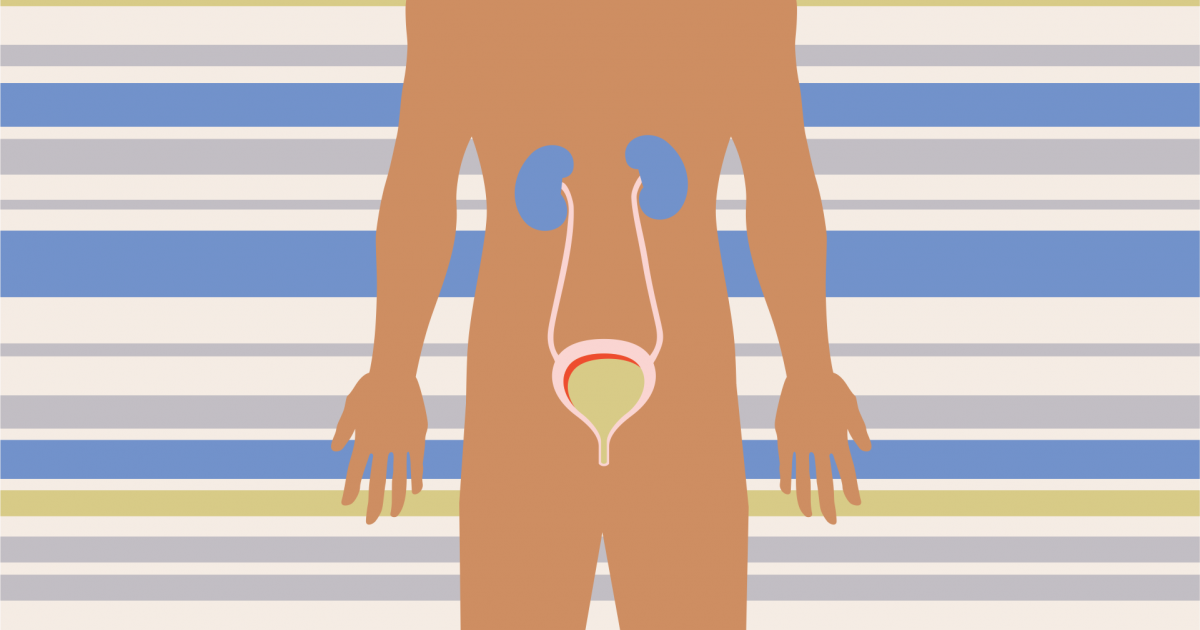Learning About Bladder Cancer
- Bladder cancer develops when cells that make up the urinary bladder start to grow and eventually develop into tumors. It is highly treatable when caught in the early stages of the disease.
- Blood in the urine, or hematuria, is the most common symptom of bladder cancer, but there are other signs of the disease including waking up to urinate many times throughout a night.
- One of our experts says the best way to avoid bladder cancer is to "hydrate well, don't smoke and make sure that you get in to see your physician if you have symptoms that concern you."
"Early acknowledgement of symptoms and not ignoring symptoms is probably one of the other most important things that you can do," Dr. Arjun Balar, the vice president of global clinical development at Loxo Oncology at Lilly, previously told SurvivorNet during a conversation about bladder cancer.
Read MoreUnderstanding Bladder Cancer
Bladder cancer is the fourth most common cancer among men, but women get the disease too. It develops when cells that make up the urinary bladder start to grow and eventually develop into tumors."Bladder cancer is one of those cancers that you don't hear about too often, which has always been surprising to me because it is the fifth most common cancer that we see in the American population," Dr. Jay Shah, the cancer care program leader for urologic oncology at the Stanford Cancer Center, previously told SurvivorNet. [It's worth noting that the National Cancer Institute puts it as the sixth most common type of cancer in the U.S.]
What Are the Risk Factors for Bladder Cancer?
There are many factors to consider regarding your risk of developing this disease including the following:
- Smoking. Smokers are three times more likely to be diagnosed with bladder cancer than non-smokers.
- Chemical exposure. Some chemicals used in dyes, rubber, leather, printing material, textiles and paint products have been linked to risk of this disease.
- Hydration. Drinking a lot of fluids each day is associated with lower bladder cancer risks. This is partly due to the fact that people who stay well hydrated empty their bladders more often.
- Race. Caucasians are twice as likely to develop this cancer.
- Age. The risk of this disease increases as you age.
- Sex. Men are diagnosed more often than women.
- Personal history. Your risk increases if you or anyone in your family has had bladder cancer.
Symptoms of the Disease
Now, let’s revisit the topic of symptoms. Bladder cancer can often be detected early because the main first sign of the disease hematuria is hard to overlook. This is great news because the disease is highly treatable when detected early.
Hematuria means there is blood in the urine. This blood can change the urine's color to orange, pink and, in some extreme cases, dark red. Hematuria is usually the first sign of bladder cancer, but it can also occur with other health issues too.
What Are the Signs and Symptoms of Bladder Cancer?
"That is far and away the most common presenting symptom," Dr. Balar previously told SurvivorNet.
In the early stages of bladder cancer, when the tumor is small and cancer cells are confined to the bladder, this bleeding is typically painless. Because of this and the fact that these symptoms can be brief and irregular, some people might not seek out medical help right away. And when there's only small amounts of blood in the urine, you might not even see a noticeable change in color.
According to Dr. Balar, other symptoms of this disease resemble that of a urinary tract infection. He even said some patients might find out they have bladder cancer after "many courses of antibiotics to treat what was thought to be a urinary tract infection that simply did not get better."
Can Urinary Tract Infections Cause Bladder Cancer? The Answer Is Mostly No.
On top of blood in the urine, other possible symptoms of bladder cancer can include:
- Needing to urinate more frequently than you typically would
- Feeling like you need to urinate urgently even when your bladder isn't full
- Waking up to urinate many times throughout a night (as we’ve mentioned before)
- Having a trouble urinating because of pain or a burning sensation
- Frequent urination, urgent urination, and uncomfortable urination are all symptoms of bladder cancer.
In addition, people with advanced bladder cancer may experience additional symptoms like:
- Inability to urinate
- Pain on one side of the lower back and pelvis
- Loss of appetite
- Unintended weight loss
- Fatigue or weakness
- Bone pain
- Swollen feet
There's no recommended screening for bladder cancer since screening methods have not been shown to reduce the risk of dying from the disease for people with an average level of risk. Even still, doctors may recommend screening for certain high risk individuals. But if you want todo your best to avoid bladder cancer, Dr. Balar's advice is simple:
"Hydrate well, don't smoke and make sure that you get in to see your physician if you have symptoms that concern you."
Learn more about SurvivorNet's rigorous medical review process.


